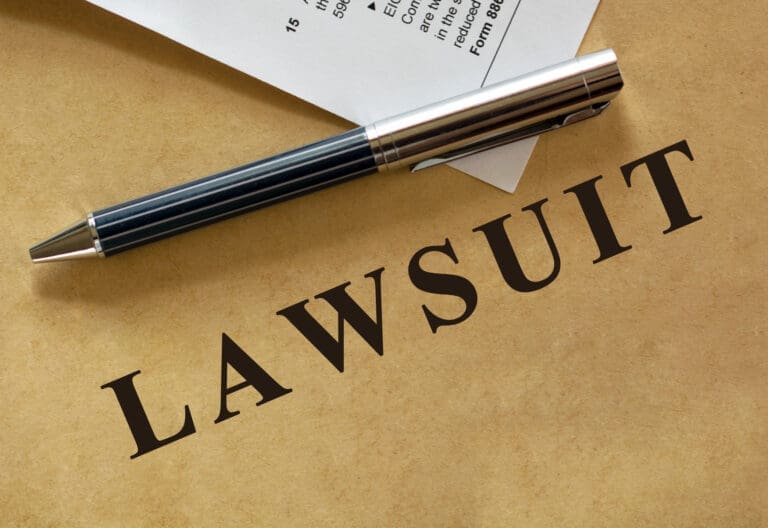
In the intricate tapestry of environmental law, the term “Back Water” often emerges as a pivotal element. This phrase broadly encompasses various aspects of water rights and environmental regulations, particularly focusing on navigable waters and adjacent wetlands. The evolving nature of water law, influenced by landmark legal battles such as the Sackett case, highlights the complexities and ever-changing dynamics of environmental regulations and water rights.
The Importance of Water Rights in Environmental Law
Water rights form the cornerstone of environmental law, especially in regions where water scarcity is a growing concern. These rights determine how water resources are allocated, used, and managed, affecting everything from agricultural practices to urban development. Environmental laws are designed to ensure fair usage, prevent pollution, and protect natural habitats, balancing human needs with ecological sustainability.
Navigable Waters and Legal Jurisdiction
The legal definition of navigable waters has significant implications in environmental law. Navigable waters are traditionally defined as bodies of water suitable for commerce or transportation. However, this definition has expanded over time to include smaller water bodies and adjacent wetlands, especially those impacting interstate commerce. Legal jurisdiction over these waters is crucial for enforcing environmental regulations and managing water resources effectively.
Wetlands Regulation and Environmental Protection
Wetlands play a critical role in environmental protection, serving as natural water filters, flood controllers, and habitats for diverse wildlife. The regulation of activities in wetlands, such as construction and industrial development, is a contentious issue in environmental law. Laws like the Clean Water Act in the United States govern activities in wetlands, ensuring their protection while balancing developmental needs.
The Sackett Case and Its Implications
The Sackett v. Environmental Protection Agency case brought significant attention to the complexities of water rights and regulations. The U.S. Supreme Court’s decision in this case had a profound impact on the definition of navigable waters and the extent of federal jurisdiction over wetlands. The ruling reshaped the landscape of environmental regulation, influencing future legislation and court decisions.
Global Perspectives on Water Rights
Globally, different countries adopt varied approaches to water rights and regulations. While some countries emphasize strict environmental protections, others prioritize developmental needs. International treaties and agreements often come into play, especially in regions where water bodies are shared across borders.
The Intersection of Environmental Policy and Legal Frameworks
Environmental policy and legal frameworks around water rights continue to evolve, addressing new challenges such as climate change and industrial pollution. Governments worldwide are increasingly recognizing the need to integrate environmental sustainability into water law. This integration is evident in policies aimed at reducing water pollution, conserving aquatic ecosystems, and managing water resources more sustainably.
Climate Change and Its Impact on Water Law
Climate change poses new challenges to water law, affecting water availability, quality, and distribution. Laws and regulations are adapting to address issues like drought management, water use restrictions, and rights allocation in times of scarcity. The legal system plays a crucial role in mitigating the impacts of climate change on water resources, ensuring equitable access and sustainability.
Industrial Development and Water Pollution
Industrial development often leads to increased water pollution, necessitating stringent laws and regulations. Environmental laws like the Clean Water Act in the U.S. set standards for industrial discharges into water bodies, holding companies accountable for pollution. These laws are crucial for protecting water quality and public health.
Water Rights in Agricultural Use
Agriculture is a major user of water resources, and legal frameworks govern its use and distribution for irrigation. Water laws must balance the needs of agricultural producers with environmental conservation. This balance is crucial in regions facing water scarcity, where overuse for agriculture can lead to environmental degradation.
International Water Law and Transboundary Water Management
Transboundary water management is a critical aspect of international water law. Shared water resources between countries necessitate cooperation and legal agreements to ensure fair and sustainable use. International treaties and conventions, such as the United Nations Watercourses Convention, provide frameworks for managing shared water resources.
Technological Advancements and Water Law
Technological advancements are influencing water law, particularly in areas like water conservation and pollution control. New technologies enable more efficient water use, better monitoring of water quality, and effective treatment of wastewater. Legal frameworks are adapting to incorporate these technologies, ensuring that they are used responsibly and sustainably.
Conclusión
The complexities of water rights and environmental law are multifaceted, encompassing issues from climate change to international cooperation. As environmental concerns intensify, water law will continue to play a pivotal role in shaping our relationship with this vital resource. Understanding these laws is crucial for anyone involved in environmental management, policy-making, or legal practice in this field.








